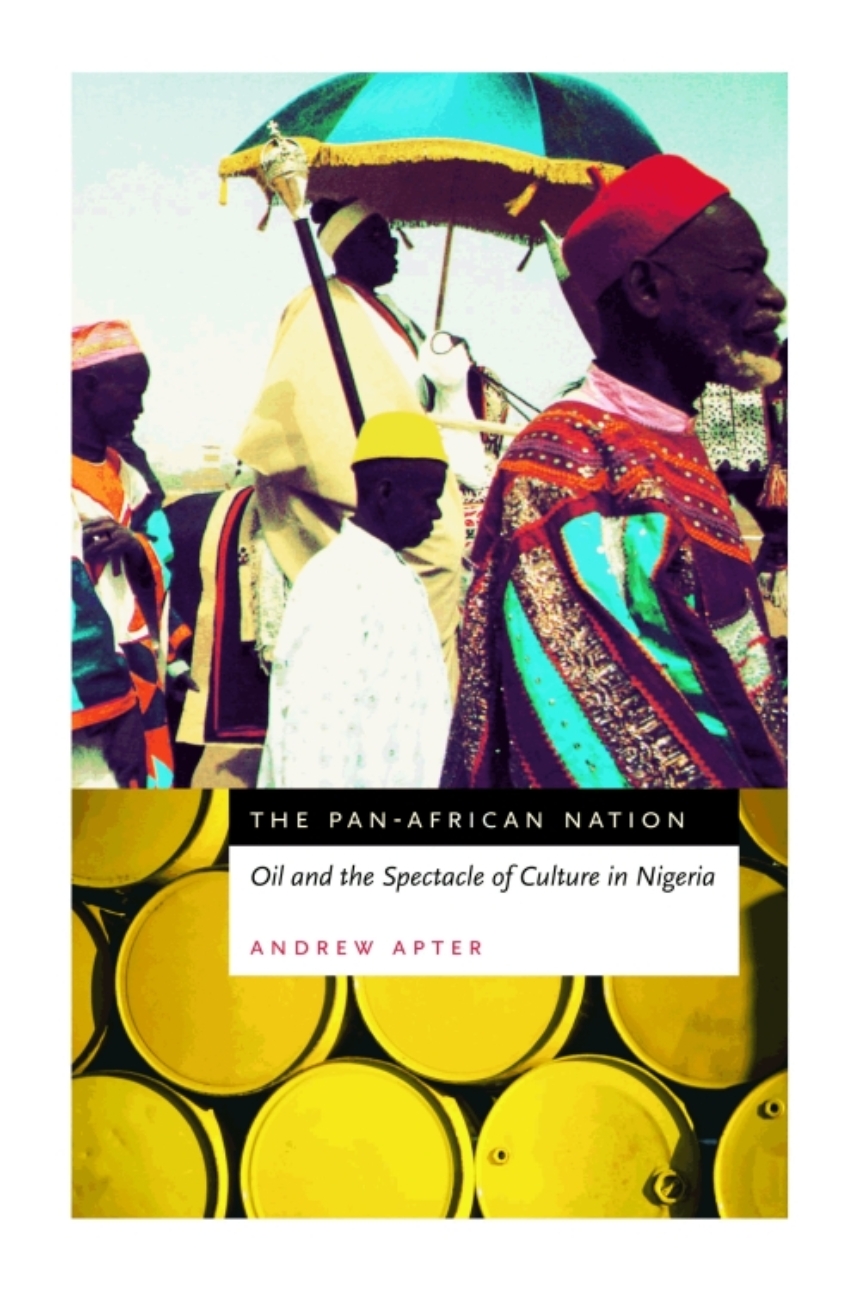The Pan-African Nation
Oil and the Spectacle of Culture in Nigeria
When Nigeria hosted the Second World Black and African Festival of Arts and Culture (FESTAC) in 1977, it celebrated a global vision of black nationhood and citizenship animated by the exuberance of its recent oil boom. Andrew Apter’s The Pan-African Nation tells the full story of this cultural extravaganza, from Nigeria’s spectacular rebirth as a rapidly developing petro-state to its dramatic demise when the boom went bust.
According to Apter, FESTAC expanded the horizons of blackness in Nigeria to mirror the global circuits of its economy. By showcasing masks, dances, images, and souvenirs from its many diverse ethnic groups, Nigeria forged a new national culture. In the grandeur of this oil-fed confidence, the nation subsumed all black and African cultures within its empire of cultural signs and erased its colonial legacies from collective memory. As the oil economy collapsed, however, cultural signs became unstable, contributing to rampant violence and dissimulation.
The Pan-African Nation unpacks FESTAC as a historically situated mirror of production in Nigeria. More broadly, it points towards a critique of the political economy of the sign in postcolonial Africa.
According to Apter, FESTAC expanded the horizons of blackness in Nigeria to mirror the global circuits of its economy. By showcasing masks, dances, images, and souvenirs from its many diverse ethnic groups, Nigeria forged a new national culture. In the grandeur of this oil-fed confidence, the nation subsumed all black and African cultures within its empire of cultural signs and erased its colonial legacies from collective memory. As the oil economy collapsed, however, cultural signs became unstable, contributing to rampant violence and dissimulation.
The Pan-African Nation unpacks FESTAC as a historically situated mirror of production in Nigeria. More broadly, it points towards a critique of the political economy of the sign in postcolonial Africa.
296 pages | 21 halftones, 1 map, 2 line drawings, 1 figure, 1 table | 6 x 9 | © 2005
Anthropology: Cultural and Social Anthropology
Culture Studies:
History: African History
Political Science: Political Behavior and Public Opinion
Sociology: Social History
Reviews
Table of Contents
Acknowledgments
Introduction
LA MISE EN SCÈNE
1 Rebirth of a Nation
2 Nigeria at Large
THE SPECTACLE OF CULTURE
3 Producing the People
4 War Canoes and Their Magic
5 A Genealogy of the Durbar
6 The Mirror of Cultural Production
LA MISE EN ABÎME
7 The Politics of Illusion
8 Death and the King’s Henchmen
Conclusion
Notes
References
Index
Introduction
LA MISE EN SCÈNE
1 Rebirth of a Nation
2 Nigeria at Large
THE SPECTACLE OF CULTURE
3 Producing the People
4 War Canoes and Their Magic
5 A Genealogy of the Durbar
6 The Mirror of Cultural Production
LA MISE EN ABÎME
7 The Politics of Illusion
8 Death and the King’s Henchmen
Conclusion
Notes
References
Index
